The Ultimate Guide To Companion Planting With Spinach
The Ultimate Guide to Companion Planting with Spinach
Spinach is a delicious and nutritious leafy green that is a great addition to any garden. But did you know that companion planting can help you grow even more delicious and nutritious spinach?
Companion planting is the practice of planting certain crops together to benefit each other. Some plants help to repel pests, while others help to improve the soil quality or provide shade. By planting spinach with the right companion plants, you can help to improve your yield, protect your plants from pests, and extend your harvest season.
In this guide, we will discuss the best companion plants for spinach, as well as some plants that you should avoid planting near spinach. We will also provide some tips on how to implement companion planting in your garden.
What are Companion Plants?
Companion plants are those that benefit each other when planted together. They may attract beneficial insects, repel pests, improve soil quality, or provide shade.
There are many different types of companion plants, and each one has its own unique benefits. Some of the most common companion plants for spinach include:
- Peas: Peas are a great companion plant for spinach because they help to fix nitrogen in the soil. This means that they release nitrogen into the soil, which can help to improve the growth of other plants.
- Brassicas: Brassicas, such as broccoli, cabbage, and cauliflower, are also good companion plants for spinach. They help to deter pests, such as aphids and cabbage worms.
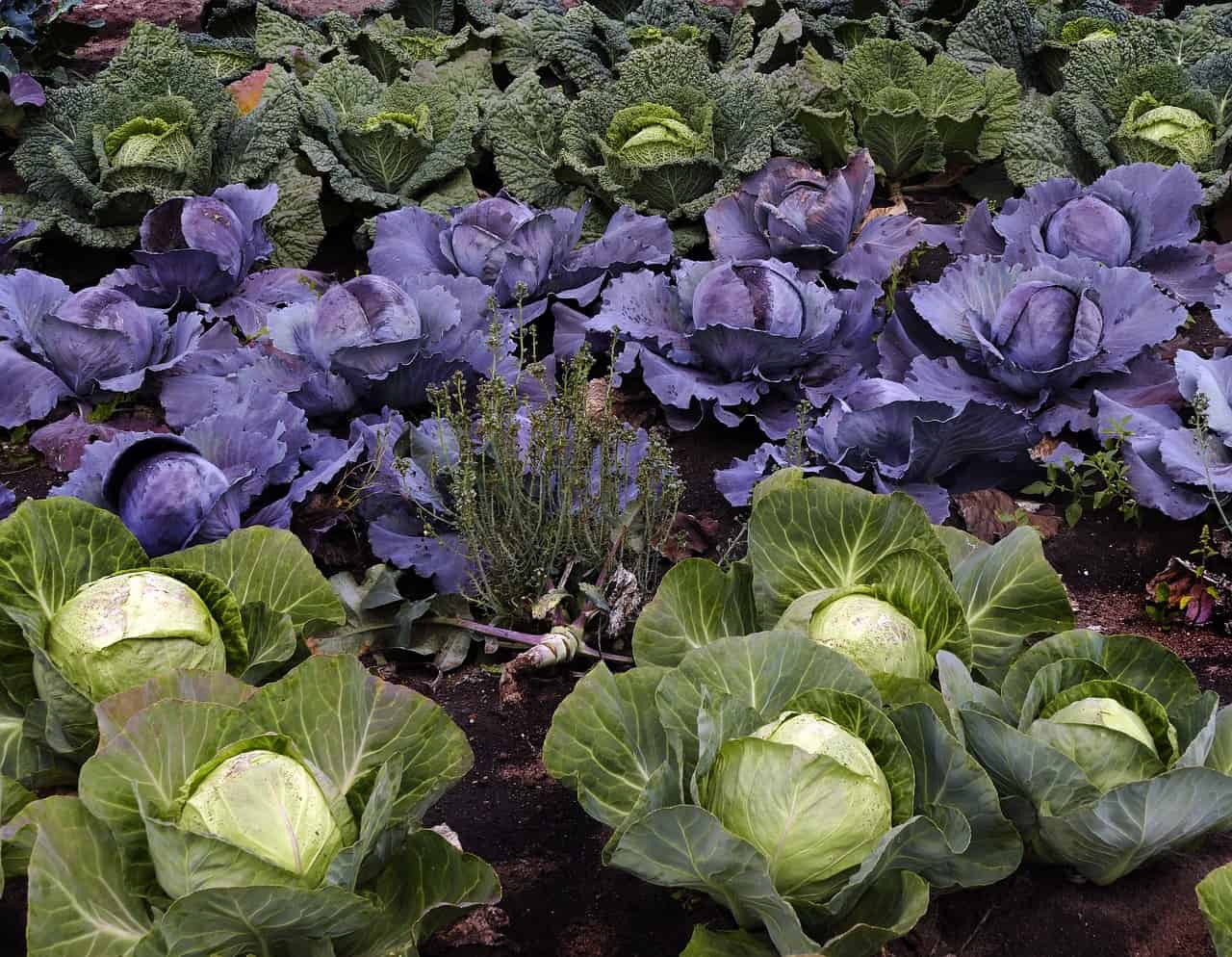
- Onions: Onions have a strong scent that deters pests, such as aphids and carrot rust fly. They also help to improve the flavor of spinach.
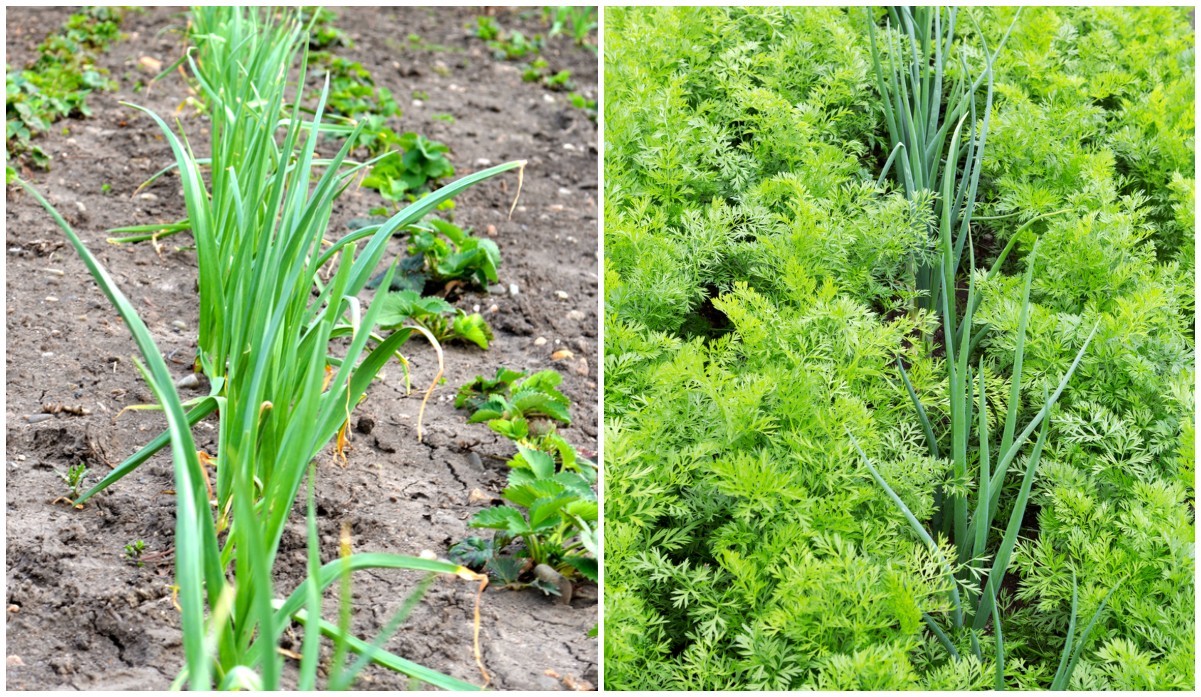
- Lettuce: Lettuce is a good companion plant for spinach because they have similar growing requirements. They also help to suppress weeds.

- Radish: Radish is a good companion plant for spinach because it helps to deter pests, such as flea beetles. It also helps to break up the soil, which can improve drainage.
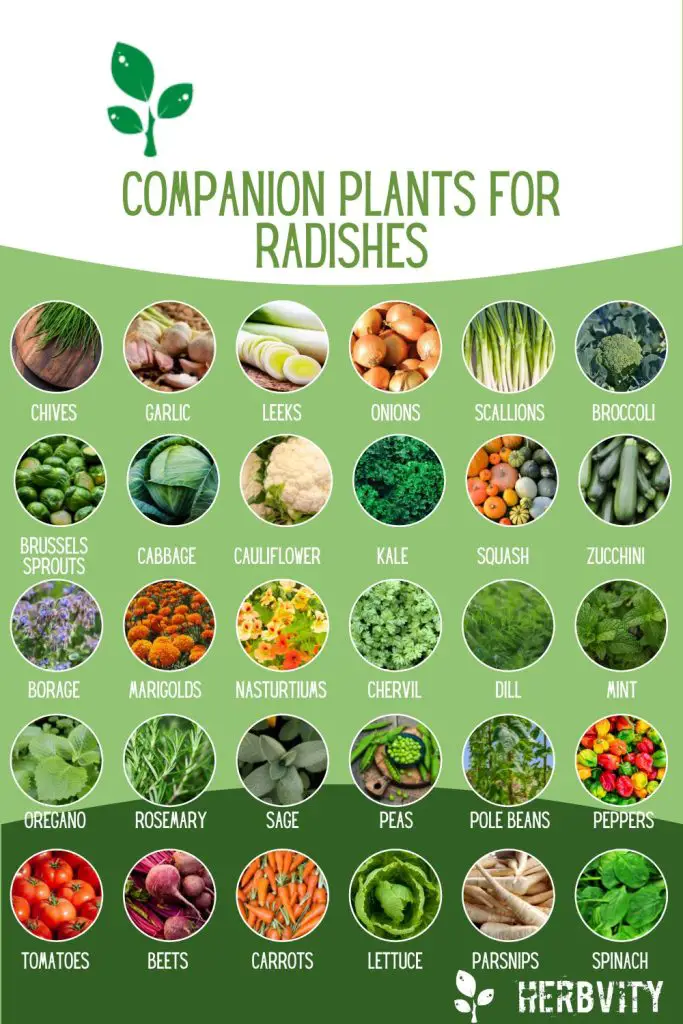
What Plants Should You Avoid Planting Near Spinach?
There are a few plants that you should avoid planting near spinach. These include:
- Potatoes: Potatoes and spinach are both susceptible to the same pests and diseases, so planting them together can increase the risk of infection.
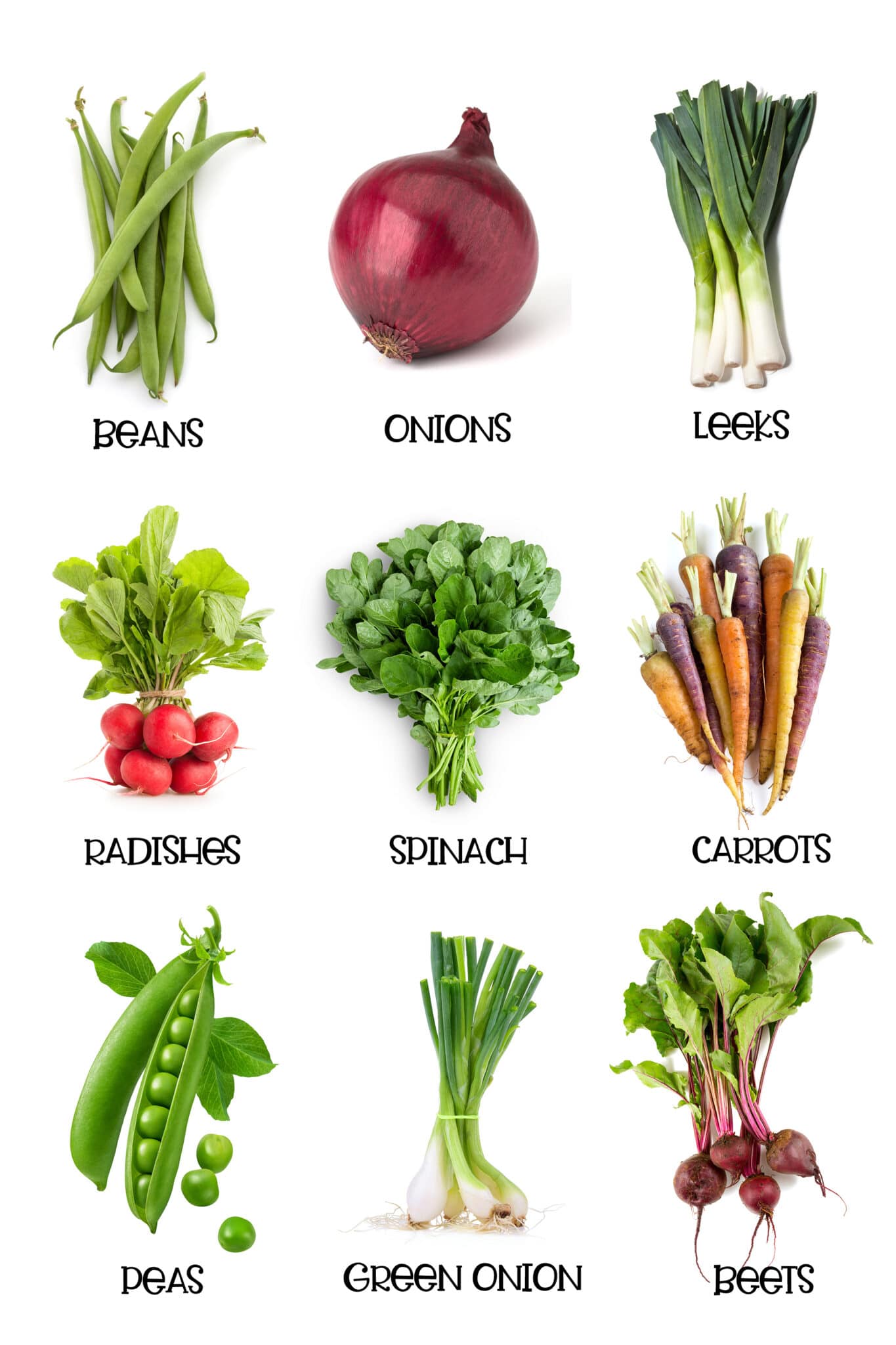
- Fennel: Fennel has a strong scent that can suppress the growth of spinach.
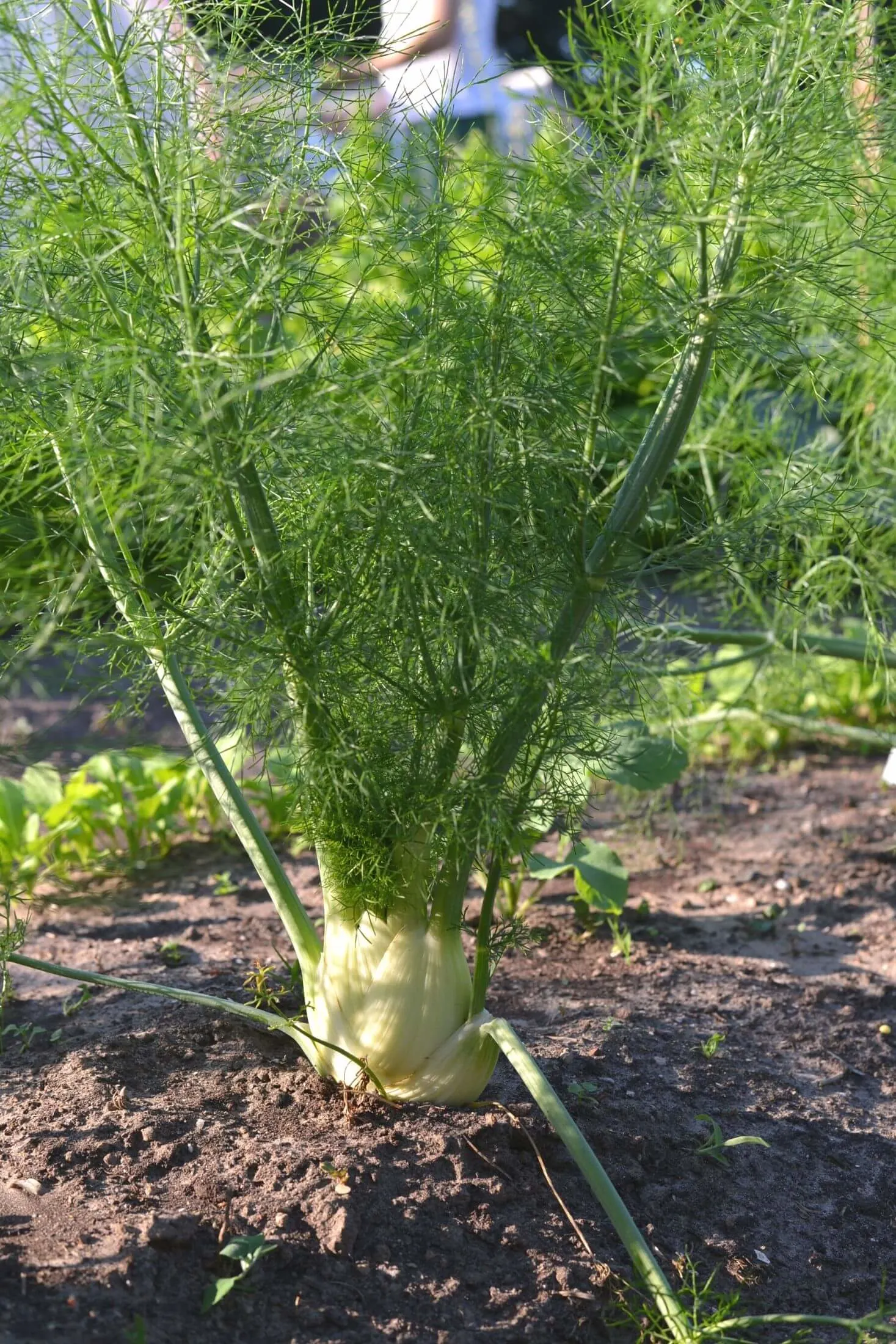
- Melons: Melons and spinach compete for the same nutrients, so planting them together can stunt the growth of both plants.
How to Implement Companion Planting in Your Garden
To implement companion planting in your garden, you first need to identify the best companion plants for spinach. Once you know which plants to plant together, you can start planning your garden layout.
When planting your spinach, be sure to space the plants appropriately. Spinach plants need about 6 inches of space between them. You should also plant your spinach in full sun.
Once your spinach is planted, you can start to enjoy the benefits of companion planting. Your spinach will be healthier, more productive, and less likely to be affected by pests and diseases.
Conclusion
Companion planting is a great way to improve the health and productivity of your spinach plants. By planting spinach with the right companion plants, you can help to deter pests, improve soil quality, and extend your harvest season.
If you are new to companion planting, start by planting a few of the recommended companion plants for spinach. As you gain more experience, you can experiment with different combinations of plants to find what works best for your garden.
Companion planting is a gardening technique that involves planting different types of plants together to benefit each other. This can be done to attract beneficial insects, deter pests, improve soil quality, or extend the growing season.
Spinach is a cool-season vegetable that is a good candidate for companion planting. Some of the best companion plants for spinach include:
- Carrots: Carrots and spinach have different root systems, so they do not compete for nutrients. Carrots also help to deter pests from spinach.
- Peas: Peas are nitrogen-fixing plants, which means they add nitrogen to the soil. This can benefit spinach, which is a heavy feeder.
- Brassicas: Brassicas, such as broccoli, kale, and cabbage, help to repel pests from spinach.
- Herbs: Herbs such as chives, dill, and mint can help to deter pests from spinach. They can also add flavor to your salads and dishes.
If you are interested in learning more about companion planting with spinach, I recommend visiting the Gardenia Inspiration. This website has a wealth of information on the topic, including a list of the best companion plants for spinach, as well as tips on how to plant and care for spinach.
FAQ of companion planting with spinach
Q: What are the best companion plants for spinach?
A: Some of the best companion plants for spinach include:
- Lettuce: Lettuce and spinach have similar nutrient needs and can help each other grow. Lettuce can also provide shade for spinach during hot summer months, which can help prevent it from bolting.
- Radishes: Radishes are a fast-growing crop that can help deter pests from spinach. They can also be used as a trap crop, attracting pests away from the spinach plants.
- Beans: Beans are nitrogen-fixing plants, which means they can help to improve the soil quality for spinach. They can also provide shade for spinach during hot summer months.
- Carrots: Carrots and spinach have different root systems, so they do not compete for nutrients. Carrots can also help to repel pests from spinach.
- Herbs: Many herbs, such as chives, mint, and parsley, can help to repel pests from spinach. They can also add flavor to salads and cooked dishes.
Q: What plants should I avoid planting near spinach?
A: Some plants that should be avoided planting near spinach include:
- Potatoes: Potatoes are heavy feeders and can take water and nutrients away from spinach.
- Tomatoes: Tomatoes can attract pests that also target spinach, such as aphids and spider mites.
- Cucumbers: Cucumbers can shade out spinach, preventing it from getting enough sunlight.
- Melons: Melons can also shade out spinach and attract pests.
- Pumpkins: Pumpkins can take up a lot of space and crowd out spinach.
Q: How do I plant companion plants with spinach?
A: When planting companion plants with spinach, it is important to consider the size and growth habits of the plants. For example, tall plants, such as beans, can provide shade for spinach during hot summer months. However, they should not be planted too close together, as they can crowd out the spinach plants.
It is also important to consider the nutrient needs of the plants. For example, nitrogen-fixing plants, such as beans, can help to improve the soil quality for spinach. However, if you are already adding nitrogen fertilizer to your soil, you may not need to plant nitrogen-fixing plants.
Q: What are the benefits of companion planting with spinach?
A: There are many benefits to companion planting with spinach, including:
- Improved crop yields: Companion plants can help to improve the growth and yield of spinach. For example, beans can help to improve the nitrogen content of the soil, which can benefit spinach plants.
- Disease and pest control: Companion plants can help to deter pests and diseases from spinach plants. For example, marigolds can help to repel aphids, and chives can help to repel spider mites.
- Improved soil quality: Companion plants can help to improve the soil quality for spinach plants. For example, legumes can help to fix nitrogen in the soil, which can benefit spinach plants.
Q: How do I choose the right companion plants for spinach?
A: When choosing companion plants for spinach, it is important to consider the following factors:
- The size and growth habits of the plants: Some plants, such as beans, can grow quite tall. If you are planting spinach in a small space, you may want to choose shorter companion plants.
- The nutrient needs of the plants: Some plants, such as legumes, can fix nitrogen in the soil. If you are already adding nitrogen fertilizer to your soil, you may not need to plant nitrogen-fixing plants.
- The pest and disease resistance of the plants: Some plants, such as marigolds, can help to deter pests and diseases from spinach plants.
Image of companion planting with spinach
5 different images of "companion planting with spinach" from Pinterest:
- Image 1: Spinach and peas. Peas help to fix nitrogen in the soil, which is beneficial for spinach. They also provide shade for the spinach plants, which can help to protect them from pests.
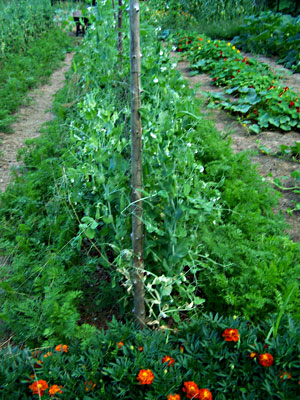
- Image 2: Spinach and strawberries. Strawberries help to deter pests from spinach plants. They also attract pollinators, which can help to improve pollination and yield.

- Image 3: Spinach and brassicas. Brassicas, such as broccoli, kale, and cabbage, are good companion plants for spinach because they don't compete for the same nutrients in the soil. They also help to repel pests.
- Image 4: Spinach and carrots. Carrots help to improve the flavor of spinach. They also help to deter pests.

- Image 5: Spinach and lettuce. Lettuce helps to suppress weeds and improve the drainage of the soil, which is beneficial for spinach.

Post a Comment for "The Ultimate Guide To Companion Planting With Spinach"